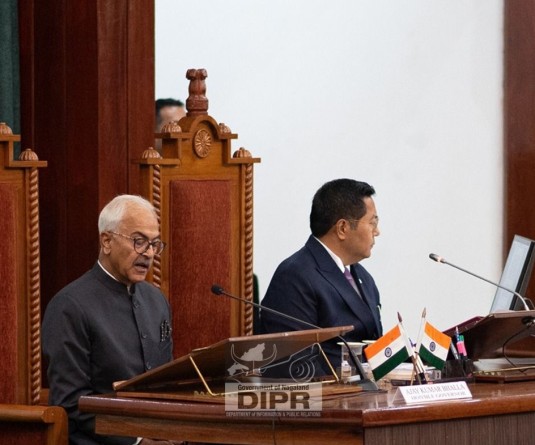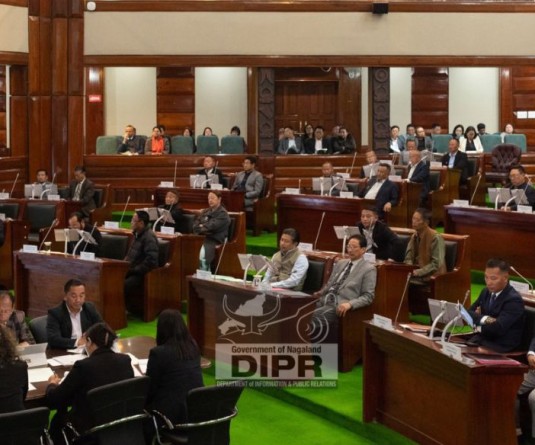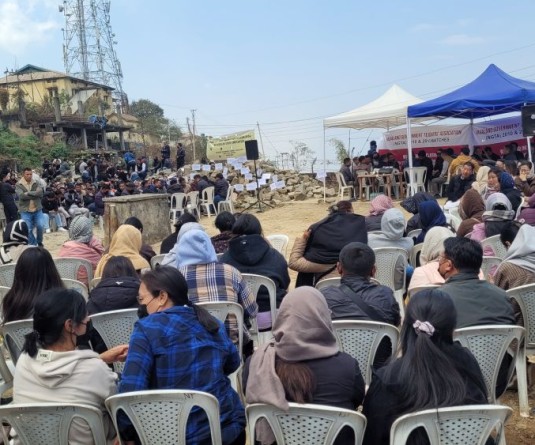1
.jpg)
Dr Aküm Longchari with the participants during the second edition of VERITAS Lecture organized by the Department of Political Science, St Joseph University, Dimapur on March 4. (Photo Courtesy: SJU)
Dimapur, March 4 (MExN): The second edition of VERITAS Lecture, an annual program organized by the Department of Political Science, St Joseph University, Dimapur was held on the topic “A conversation on leadership and power” on March 4.
Dr Aküm Longchari, Publisher, The Morung Express who was the resource person started with the note that university is a mechanism to enable unity in diversity. He elaborated on the point that a leader must not only educate and motivate but also recognize and understand the complexity of the concept of diversity in unity or vice-versa. “A leader must also be a deep listener; listening not only to what was spoken but more importantly to what was not spoken and what really needs to be spoken.”
According to a press release issued by the Department of Political Science, St Joseph University, Dimapur, the contextual praxis that calls for the need of such leaders in the Naga society was also conversed through a practical demonstration on the danger behind the faulty power structure. A leader must therefore engage with such structure, otherwise referred to as “structural violence” in the parlance of peace and conflict studies. “Reviving the sense of purpose combined with political courage (the courage to criticize the self) and dreaming dreams with the aim of reconceptualizing time comprised the basic tenets of a leader,” he said.
The press release also stated that the event received several positive feedbacks particularly from the students.
The interplaying of history, geography and culture that forms the world politics and its history defined by human characters like fear, self-interest and honor was found insightful and helpful. The absence of anchor in today’s Naga politics that engenders stagnancy of the society and the lost of sight of the people thereby necessitating immediate address to such questions was also found to be thought provoking. The need of the Naga leaders not to just limit themselves to the feelings of the people and not to exercise power “over” the people rather exercise such power “with” the people was considered a different perspective of understanding the Naga scenario.






